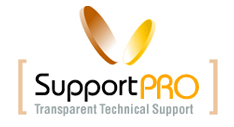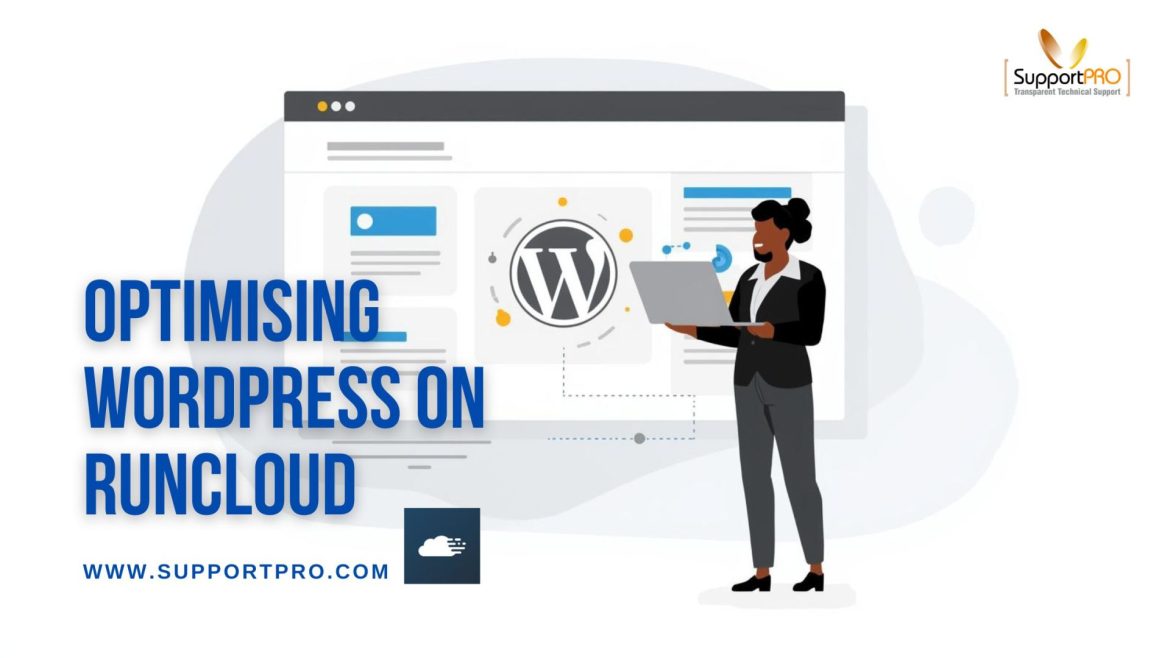Black Friday is coming up fast, and if your site isn’t ready, you could lose traffic and sales in a heartbeat. It’s the busiest time of the year, and every second your pages take to load can make or break a sale.
If you’re running your WordPress site through RunCloud, you already have a leg up. The platform gives you the tools to manage servers easily and fine-tune performance without digging too deep into code. But to really get your site humming, caching is where the magic happens.
Less work for the server means faster load times, which, during a sale, can mean the difference between a conversion and a bounce. RunCloud supports two main setups: Nginx and OpenLiteSpeed (OLS), and each has its own caching system. Let’s walk through both and see how you can leverage them for WordPress optimization on RunCloud and increase WordPress speed for high-traffic events.
If You’re on Nginx: RunCloud Hub Is Your Friend
For WordPress sites running Nginx, RunCloud Hub makes performance optimization much easier. It’s RunCloud’s own plugin, designed to connect your WordPress install directly to server-level WordPress caching without the headache of manual configuration.
You can install it straight from your dashboard — no command line needed. Once activated, it just quietly does its job in the background.
The first thing you’ll notice is how easy it is to clear your cache. If you’ve ever updated a product, changed pricing, or launched a limited-time offer and had visitors still seeing old data, this fixes that instantly. A single click refreshes everything, keeping your WordPress site speed consistent during updates.
Hub also supports Redis, which is a high-performance in-memory data store used for caching. Instead of hitting your database for every request, Redis stores important data — posts, pages, product info — in memory, ready to serve. It can shave seconds off load time, helping improve overall WordPress performance.
You get a couple of WordPress caching options, too. Full-page caching through Redis delivers entire pages from memory — perfect for busy stores. If you’d rather keep things simpler, the FastCGI option saves cached pages to disk and works reliably for most sites.
And if you manage multiple WordPress sites, you’ll appreciate that RunCloud lets you handle all of them from one panel. Higher-tier users even get Magic Link Login, which enables you to jump into WordPress without typing passwords — a small but nice time-saver during rush hours.
If You’re Using OpenLiteSpeed: Go with LiteSpeed Cache
Now, if your server is running OpenLiteSpeed, the plugin you want for WordPress performance and speed optimization is LiteSpeed Cache (LSCache). It’s built directly into the LiteSpeed server, which means it doesn’t just speed up WordPress — it speeds up the whole environment, giving you faster OpenLiteSpeed WordPress caching and overall performance.
LSCache stores full pages in memory and serves them instantly, helping improve WordPress load times before the backend even starts processing. It’s fast. There’s also a “Guest Mode” that ensures first-time visitors don’t have to wait for backend scripts to load before seeing content.
Images are another big deal, especially for WordPress eCommerce optimization. LSCache automatically compresses and converts images to lighter formats like WebP or AVIF, reducing page weight without sacrificing quality.
You can also let it handle code cleanup — it’ll minify and merge your CSS, JS, and HTML files, boosting WordPress front-end performance by reducing the number of requests. Critical CSS makes sure the visible part of your site (what people actually see first) loads right away.
Add in browser caching and CDN support — Cloudflare, QUIC.cloud, and others — and you’ve got a seriously efficient global WordPress performance setup that can handle heavy traffic.
Quick answers to common questions
A few things people ask about RunCloud caching and WordPress performance optimization come up often.
If you’re wondering whether RunCloud Hub caching works with OpenLiteSpeed for WordPress, the answer is no. Hub is for Nginx only. OLS has its own system, and LiteSpeed Cache is built specifically for that.
What about WP Rocket? It generally plays nicely with RunCloud Hub. WP Rocket handles things at the WordPress application level, while Hub works at the server level. If you turn on Redis Full-Page Cache, RunCloud will automatically disable WP Rocket’s page caching to avoid overlap — everything else in WP Rocket still works as expected.
By the way, RunCloud already includes Redis ACL support for faster WordPress performance, so you don’t need to add anything extra. It basically lets you control which users can reach specific parts of your Redis database — a small but valuable layer of protection if multiple people work on your site.
Alright, here’s the summary
If your site runs on Nginx, RunCloud Hub with Redis caching for WordPress is the smarter choice, improving site speed and performance. It’s fast, stable, and easy to configure.
But if your setup is on OpenLiteSpeed, you’ll want to stick with LiteSpeed Cache instead. It’s baked right into the server, which means it works more efficiently and gives you more control over how your pages are delivered.
Each option fits its environment best, so don’t stress too much — pick the one that matches your stack, and you’ll see a noticeable difference in speed and performance almost immediately.
Both options will give you faster load times and smoother performance. When the Black Friday crowd floods in, that can make a real difference. So Which One Should You Use?
A Few Last-Minute Checks Before the Sale
Before you flip the switch on your campaign, take ten minutes to test your WordPress site on RunCloud. Make sure RunCloud caching is active. Open a few pages and reload them to see if they’re being served from cache — they should load almost instantly, improving WordPress performance and speed.
Next, go through your images — if they’re heavy, optimize them for WordPress speed by compressing or converting them. WebP usually cuts the size in half. Connect your CDN if you haven’t already, and run a quick audit on PageSpeed Insights or GTmetrix. It’s better to catch small issues now than under a traffic spike during Black Friday.
Don’t Want to Do All This Yourself?
If you’re short on time or you’d rather not risk something breaking right before your sale, our team can set up and fine-tune your RunCloud WordPress site for speed and stability.
Our team has worked with dozens of WordPress sites on RunCloud, and we know exactly how to fine-tune things for speed and stability. We’ll make sure your caching setup is solid, your site loads fast, and nothing breaks when the big traffic surge comes.
If you need help with Optimizing WordPress on RunCloud, our expert support team is here to assist you. Feel free to contact us for any troubleshooting or guidance.
Partner with SupportPRO for 24/7 proactive cloud support that keeps your business secure, scalable, and ahead of the curve.




